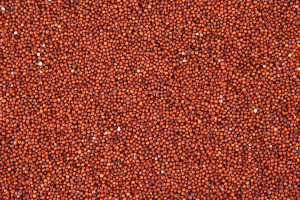

Among the countless other veggies that are currently available, sweet potatoes are thought to be among the healthiest. Minerals and vitamins A, B, and C are abundant in vegetables with orange (or rarely purple) flesh. As a result, sweet potatoes are now frequently referred to as a superfood. Sweet potato, also referred to as “shakarkandi” in India, does not belong to the same tuberous family as potatoes. But in most recipes, they work just as well as conventional potatoes because of their starchy and creamy texture.
Sweet potatoes, which have recently been dubbed “superfoods,” are good for the eyes, regulate blood pressure, and have antioxidant and anti-inflammatory properties.
The different types of sweet potatoes include:
- Orange sweet potato
- Purple sweet potato
- White sweet potato
In this blog, we will discuss the health benefits of sweet potatoes.
Nutritional Value of a Sweet Potato
3.5 ounces (100 grams) of sweet potatoes have the following nutrients:
- 86 Calories
- 77% Water
- 1.6 grams Protein
- 20.1 grams Carbs
- 4.2 grams Sugar
- 3 grams Fibre
- 0.1 grams Fat
There are many nutrients in sweet potato. It can be trusted as a healthy source of carbs. When ingested, it produces sustained energy.
Why are Sweet Potatoes Called Superfood?
Sweet potatoes are considered a superfood because of many reasons. Sweet potatoes health benefits include:
1. Maintaining Healthy Blood Sugar Levels
Type 2 diabetes is brought on by an imbalance of insulin and blood sugar in our bodies. A particular variety of sweet potatoes, however, is thought to lessen Type 2 diabetic symptoms.
A number of additional arguments support the idea that sweet potatoes help keep blood sugar levels stable. It aids in lowering blood sugar levels. It also improves insulin sensitivity and reduces LDLs (bad cholesterol). According to studies, sweet potatoes boost immunity, helping prevent and reduce the symptoms of diabetes. Moreover, due to their low glycemic index, sweet potatoes can, when consumed in moderation, assist people with diabetes maintain balanced blood sugar levels.
An abundance of polyphenolic molecules, called anthocyanins, can be found in darkly coloured fruits, vegetables, and grains. It lessens insulin resistance, which reduces the signs and symptoms of Type 2 diabetes.
2. An Ideal Vitamin A Source
Beta-carotene, which is the most antioxidant, is present in sweet potatoes and the body transforms it into vitamin A. One medium-sized sweet potato has all the vitamin A you’ll need for the day.
Additionally, it contains an antioxidant that strengthens immunity, supports eye health, and keeps the skin healthy. Sweet potatoes’ beta carotene concentration is what gives them their intense yellow or orange colour. Additionally, orange sweet potatoes raise your blood levels of Vitamin A.
3. Full of Potassium
If you want to improve your intake of potassium, sweet potatoes are a fantastic option. Potassium is one of the important nutrients in sweet potatoes. A medium-sized sweet potato has a potassium content of 541 mg or 12% of your daily recommended requirement. When ranking foods high in potassium, sweet potatoes are second only to avocado.
4. An Excellent Source of Complex Carbohydrates
Sweet potatoes are low in fat. They are a great source of complex carbs and contain a modest bit of protein. It is also a top-notch fibre supplier. According to some studies, increasing dietary fibre can help people lose weight by inadvertently reducing their caloric consumption.
Sweet potatoes are a superfood that not only tastes delicious but is also incredibly nutritious. Sweet potatoes are a low-calorie, nearly fat-free source of energy since they are roasted, which reduces their calorie count to 135 calories (31g carb, 3.8g fibre, and no fat) per 150g.
5. Rich in Fibre
A medium sweet potato with skin has 4 to 6 grams of fibre per serving. It promotes healthy digestion and guards against conditions like diabetes, diverticular disease, heart disease, and constipation. Purple sweet potatoes also encourage good gut flora. These include species such as Bifidobacterium and Lactobacillus.
6. Boosting Women’s Fertility
A Harvard Medical School study suggests that plant-based iron may increase fertility. Iron is present in sufficient amounts in sweet potatoes. Moreover, vitamin and antioxidant content in sweet potato help in balancing hormones. As a result, sweet potatoes might boost fertility.
According to research, iron deficiency or anaemia is a significant contributor to infertility. However, sweet potatoes have a good amount of iron in them. Therefore, it is safe to say that sweet potatoes are effective at increasing fertility.
7. Excellent Source of Choline
Sweet potatoes contain choline, a B-vitamin family micronutrient. Sweet potato benefits you as it lessens chronic inflammation while enhancing sleep, muscle function, learning, and memory.
8. Decreasing Oxidative Damage
Oxidative damage and increased risk of cancer may result from cell damage. Sweet potatoes contain an abundance of carotenoids, an antioxidant. It lessens free radicals and oxidative damage. Thus, it aids in lowering the risk of developing cancer. Additionally, carotenoids help reduce the risk of kidney and stomach cancer.
Precautions When Consuming Sweet Potato
Consuming sweet potatoes is not good for those who have coronary or heart disorders. One must also avoid eating this vegetable when using beta-blockers.
Both sweet potatoes and beta-blockers have high potassium contents which could result in various problems.
Conclusion
Because of the above-mentioned benefits, sweet potatoes are considered a superfood.
They are rich in vitamin and mineral content. Your health may benefit if you include some in your diet! But keep in mind that a balanced diet cannot be created by a single superfood. The flavour of life is variety. Try a variety of fruits and vegetables as well as sources of complete protein (containing all essential amino acids) and healthy fats.




